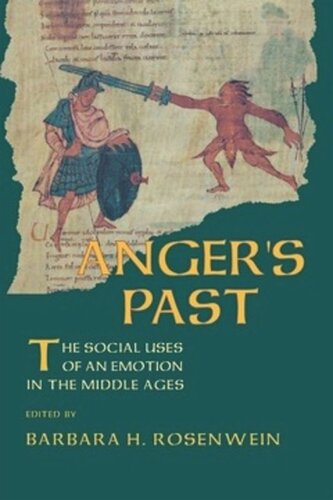

Most ebook files are in PDF format, so you can easily read them using various software such as Foxit Reader or directly on the Google Chrome browser.
Some ebook files are released by publishers in other formats such as .awz, .mobi, .epub, .fb2, etc. You may need to install specific software to read these formats on mobile/PC, such as Calibre.
Please read the tutorial at this link: https://ebookbell.com/faq
We offer FREE conversion to the popular formats you request; however, this may take some time. Therefore, right after payment, please email us, and we will try to provide the service as quickly as possible.
For some exceptional file formats or broken links (if any), please refrain from opening any disputes. Instead, email us first, and we will try to assist within a maximum of 6 hours.
EbookBell Team

4.0
76 reviewsBooks have rarely been written about the history of any emotion except love and shame, and this volume is the very first on the meaning of anger in the Middle Ages. Well aware of modern theories about the nature of anger, the authors consider the role of anger in the social lives and conceptual universes of a varied and significant cross-section of medieval people: monks, saints, kings, lords, and peasants. They are careful to distinguish between texts (the sources on which historians must rely) and the reality behind the texts. They are sensitive, as well, to the differences between ideals and normative behavior.
The first eight essays in the volume focus on anger in the Latin West, while the last two turn to the fringes of Europe (the Celtic and Islamic worlds) for purposes of comparison. Barbara H. Rosenwein concludes the volume with an essay on modern conceptions of anger and their implications for understanding its role in the Middle Ages. The essays reveal much that is new about medieval rituals of honor and status and illuminate the rationales behind such seemingly irrational practices as cursing, feuding, and the punishment of blinding.
Contributors: Gerd Althoff, University of Münster; Richard E. Barton, Yale University; Geneviéve Bührer-Thierry, University of Marne-la-Vallée; Wendy Davies, University College London; Paul Freedman, Yale University; Zouhair Ghazzal, Loyola University, Chicago; Paul Hyams, Cornell University; Lester K. Little, Smith College; Catherine Peyroux, Duke University; Barbara H. Rosenwein, Loyola University, Chicago; Stephen D. White, Emory University